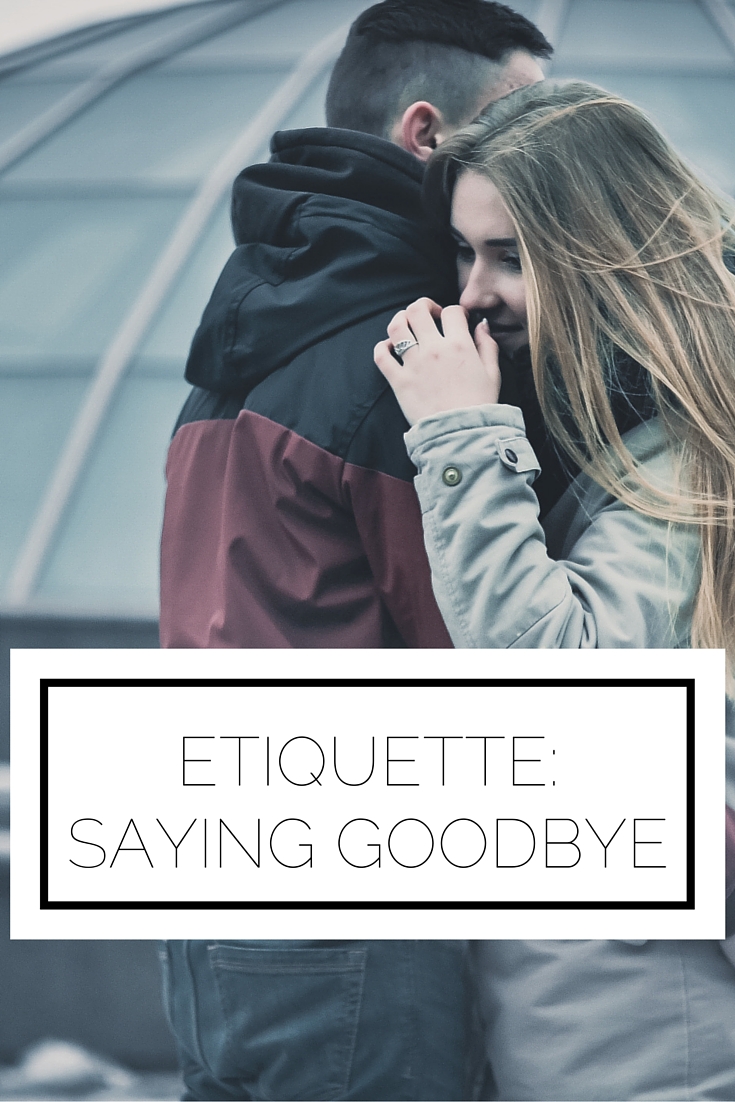As Juliet said, “Parting is such sweet sorrow.” So, how does one go about bidding adieu? Here is how you do it in a multitude of situations (although most probably won’t be as dramatic as this picture!).

- When leaving a party you need only say goodbye to the host and guest of honor. If it is an intimate party it is probably best to give a general wave to the group but not necessary to say goodbye to everyone individually.
- When a fellow student or co-worker is a little too talkative it’s best to cite having work to get done (which is the truth!). Something like “It was nice talking to you but I really have a mountain of work to get through! Have a good day and I’ll see you later” will do the trick.
- When you’re on a date and you’re female, you’re expected to end the night according to etiquette rules. If you’re tired, have an early meeting the next day, or just feel as though the date should be at a close you can simply thank your date for a nice time and take your leave. If he drove, you can mention another obligation (you need to take your dog out, you need to make a business call, etc) and request to be taken home. Beyond a handshake, you’re not obligated to have any other physical contact at the end of the date.
- When on the telephone I am always a fan of “Well I have to get going now. It was lovely talking to you” in which case the other person will probably say something along the lines of “Oh, ok! I’ll talk to you later” then you say “Good bye” and then he or she says “Good bye” and then you hang up. Now, sometimes the other person does not want to stop talking in which case he or she may take up another line of conversation. It’s best to say “I’d love to hear all about (insert topic here) but I really do have to go now. I’ll talk to you later. Good bye” and then wait for them to say goodbye and then hang up.
- When closing an email my favorite sign off is “Regards.” This can work in both the personal and professional setting. “Thank you” is quite obviously good when someone has helped you, or “thank you in advance” when you anticipate assistance. “Sincerely” can also work as a closing for any situation. For personal contacts who you know well, just try to mirror your in person form of good bye. For not well known business correspondents it’s best to tread carefully or risk being too familiar.
Well, those are the top cases I can think of! If you have other situations you are curious about leave a comment!
-AJF



Leave a Reply